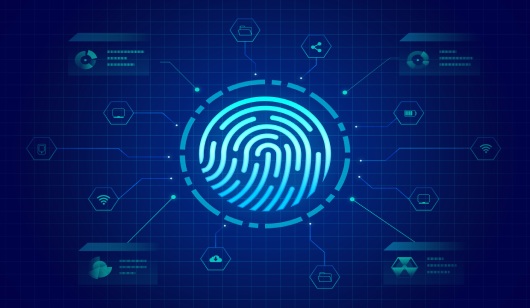-
The government of Brazil has made a groundbreaking announcement, revealing plans to implement blockchain technology for its digital ID system for over 214 million citizens. The states of Rio de Janeiro, Goiás, and Paraná will pioneer this initiative, utilizing a private blockchain system developed by Serpro, Brazil's national data processing service. A decree issued on September 25 has set a target for the entire nation to adopt blockchain technology for identity documentation by November 6. This is a significant step in the blockchain app development space, driving blockchain's global adoption initiative.
Alexandre Amorim, President of Serpro, emphasized that the inherent immutability and decentralization of blockchain technology make it the perfect choice for Brazil's digital identification project.
According to statements from the local government, the national ID project holds significant importance in combatting organized crime, enhancing intergovernmental collaboration, simplifying access to services, and optimizing administrative record-keeping.
b-Cadastros | The Blockchain Network for National Identity Card Project
In its pursuit of a new national identity card system, Brazil's government has introduced a blockchain network to bolster the security of data sharing between the Federal Revenue Service and civil identification agencies. This network will serve as the foundation for the revenue service's collaborative database, known as b-Cadastros, enabling operations related to the creation, modification, and retrieval of new ID cards and tax registration numbers. The platform has been developed by Serpro, a state-owned IT services corporation in Brazil.
b-Cadastros is constructed upon Hyperledger Fabric, a platform tailored for permissioned blockchain networks, specifically designed for organizations looking to establish a consortium. In other words, participation in a blockchain built on Hyperledger Fabric requires an invitation.
The National Civil Identity Card (ICN) stands as an upgraded replacement for Brazil's traditional paper-based ID cards, with its nationwide issuance commencing in July 2022. This project's primary objective is to centralize the nation's civil identification system, leveraging the ICN database to authenticate individuals accessing public services online.
The new plastic card empowers users to generate a single digital version of their document, offering enhanced security through the utilization of a printed QR code for validation. By adopting this blockchain-enabled ID system, the Brazilian government aims to centralize processes and mitigate fraud and illicit activities, as the current system allows individuals to request identification cards in each of the country's 27 states.
In the coming week, the Brazilian states of Rio de Janeiro, Goiás, and Paraná will spearhead the implementation of the blockchain-based version of the National Revenue Service's collaborative registry for the issuance of these new ID cards, with the remaining states expected to follow suit within the next six weeks.
You may also like | Satoshi Nakamoto's Last Email Reveals Bitcoin Creator's Thoughts
Argentina also Gears Up for Digital Transformation
In a similar vein, the city of Buenos Aires, Argentina, has unveiled a parallel undertaking that enables its residents to access vital identity documents, including birth certificates, marriage records, and academic credentials, through a digital wallet.
This innovative endeavor relies on QuarkID, a solution crafted by the Web3 company Extrimian, and harnesses zkSync Era, an Ethereum scaling protocol founded on zero-knowledge rollups.
Guillermo Villanueva, CEO of Extrimian, underscores the profound significance of this development within the realm of Latin American governance. He underscores that this initiative has the potential to serve as a model for the integration of blockchain technology in the service of the public good.
Also, Check | Comprehending ZK Rollups | Layer 2 Scaling Solutions
Brazil's Other Digital Transformation Initiatives
In recent years, Brazil has undertaken a significant initiative to streamline identity issuance processes across its nearly 30 states. The newly implemented technology is set to facilitate more secure data exchange between the Federal Revenue and various government departments, as announced officially.
In another notable development, the country is gearing up for the launch of its Central Bank Digital Currency (CBDC). In August 2023, the government released further details about the project, which was previously known as the Digital Real but has now been officially rebranded as "Drex." As previously reported, the central bank has ambitious plans to expand business access to capital through a tokenization system linked to Drex. However, it's worth noting that local developers have discovered that the Drex code allows for a central authority to freeze funds or make balance reductions, as per earlier reports.
If you are also looking to incorporate blockchain into your business or want to build a new project, connect with our blockchain developers to get started.

Our Offices
INDIA
Emaar Digital Greens, Sector 61,
Gurugram, Haryana
122011.
Welldone Tech Park,
Sector 48, Sohna road,
Gurugram, Haryana
122018.













